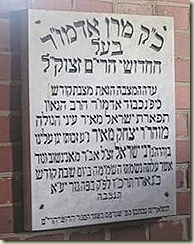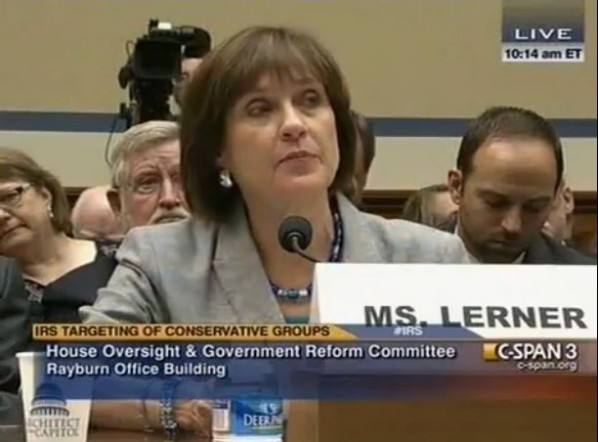Thanks to Eli Chitrik
Makos 9b
- In continuation of last weeks discussion of the Perosahs Derochim, we continued with an interesting Vort that he mentions.
See here where the Rebbe discusses the Peroshas Derochim about this topic.
http://beta.hebrewbooks.org/pdfpager.aspx?req=14928&st=&pgnum=155
The Medrash at the end of Parsahs Mikeitz states the following:
When they found Yosef’s goblet in the bag of Binyomin, the Shvotim started to hit Binyomin on his shoulder and proclaimed “Thief the son of a thief” (They referred to his mother Rachel who stole from Lavan).
Binyomin answered them back, “you are calling me a thief?! You were the ones who stole and sold Yosef as a slave!”
The Parashas Derochim asks what is the significance of hitting him on the shoulder?
It is explained that the reason why the Beis Hamikdash was built on the portion of Binyamin is because all of the Shevatim were guilty of selling Yosef their brother.
Binyomin having no part of therefore merited to have the Beis Hamikdosh built on his land.
This is indicated by the Berochos that Moshe gave Binyomin “And of Benjamin he said, “The Lord’s beloved one shall dwell securely beside Him; He protects him all day long, and He dwells between his shoulders.” And as Rashi explains “He dwells between his shoulders” means that the Beis Hamikdash was built in his portion.
This is why they were hitting him on his shoulder. They were indicating that the whole reason they Beis Hamikosh will be built in Binyomin’s portion is because he is the only with clean hands among them. But now “you seem to be a thief as well, since you were one who stole Yosef’s goblet”. Hence the punches to his shoulder symbolizing the Beais Hamikdosh.
We also discussed his brilliant explanation of the dialog of the brothers pertaining to what should be done to Binyomin as a result of the alleged theft.
- It says in “Medrash Pliah” that from the fact that Avraham told Sara to tell the Plishtim that you are my sister, we can arrive at the Halocho that you are allowed to Shecht for a sick person on Shabbos?!

What is the connection?
The Rebbe’s explanation is: Avraham tells Sara to say that “you are my sister. They will therefore not kill me”.
The obvious question is- if the Plishtim were not hesitant to kill Avraham (had Sarah said that she was his wife), why were they so worried about not committing adultery? Murder is harsher that adultery!
The answer is that their logic was if they kill him they would only be committing an Aveirah- murder, albeit a harsh one at that, but only once. However if they kept Avraham alive and snatched Sara, every time they lived with her they would be committing another (lesser) Aveirah.
So Avraham tells Sara that unless she lies they will most definitely kill him and then take her.
From here we see the concept that it is better, when necessary, to transgress one strict Aveirah once than to perpetually commit several lesser ones.
Therefore we can deduct from this that it is better to Shect for a sick person on Shabbos and commit one harsher Aveirah (Shchita on Shabbos which is Skila), than to give him non Kosher where every bite he would be committing another Aveirah (A ‘lav’) repeatedly.
- We spoke about the circumstances of when a person goes to Golus. As the Torah clearly states it is only when one kills unintentionally then for the sake of protecting him from the victim’s family (Goel Hadam), he is directed to escape to Orei Miklot .

The Misnah (Makos 9b) states: If one kills a person whom he is known to have hated (so’ne -a hater) and then claims that his action was unintentional the rule is that we don’t believe him. Beis Din does not accept his plea – they deem it to have been done Bemaizid- intentionally.
[He is not executed since there were no witnesses and warning. But neither does he go to Golus, for Golus is not an atonement for intentional murder.]
We mentioned the logical question of the Chidushei H”arim the first Rebbe of Ger who established the dynasty of Ger.

The Gemara in Sanhedrin states even a person who is in a fight with someone else (‘sone’) can still be a witness in his enemy’s case. This is because Jews are not accused of lying falsely just because he is an enemy.
So asks the Chidushei H”arim: How we can accept the testimony of a hater-enemy because we assume that he will not lie when this same enemy-hater is under suspicion to kill!
(Hit up the comments for some answers!)
testimony of an enemy:


“V’ulie yesh lechalek”
Perhaps a difference is between something good and something evil, as we know ( from the story of yona etc) that a negative prophecy can be changed in a way that it will not happen.